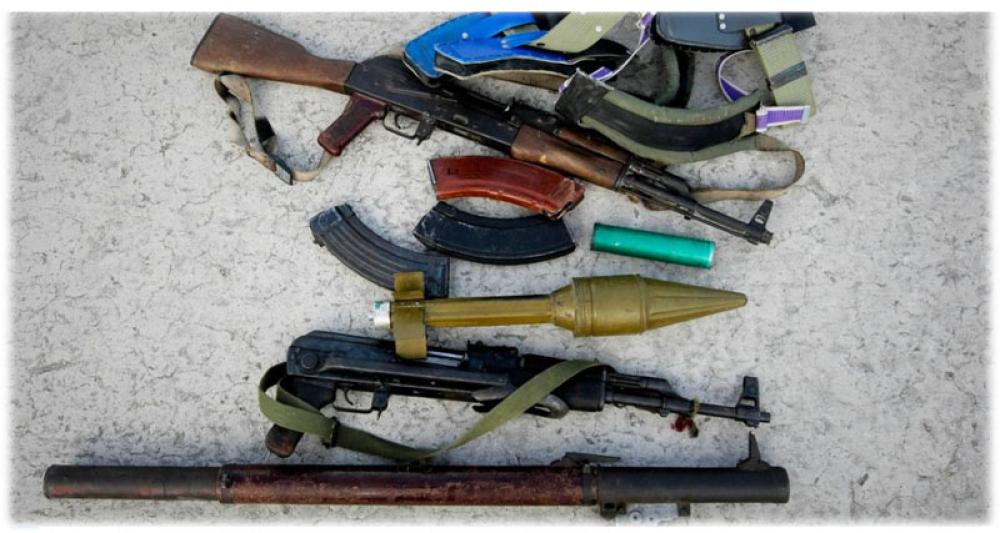Just Earth News | @justearthnews | 11 Apr 2023, 05:01 am Print

Image: UN Photo/Stuart Price
New York: Implementing the many global tools aimed at controlling the trade and transfer of weapons – ranging from tracing instruments, to export rules, to safe storage guidelines and beyond – is crucial to prevent arms from falling into the wrong hands, the UN’s senior disarmament official told the Security Council on Monday.
“Emanating from any arms transfer is the inherent risk of diversion of the equipment to unauthorized end users,” said Izumi Nakamitsu, UN High Representative for Disarmament Affairs.
Addressing the Council during the first open meeting of Russia’s month-long presidency – and during which many delegates referenced the ongoing conflict in Ukraine – she emphasized that measures to counter weapons diversion contribute significantly to global peace and security, especially conflict prevention.
Illicit, unregulated trade
The illicit and unregulated trade and the diversion of weapons and their ammunition, has long been a major concern for the international community.
Illicit and unregulated arms transfers can instigate, fuel and prolong armed conflict, armed violence, terrorism and crime.
They can also destabilize entire regions, contribute to and enable human rights abuses, and lead to violations of arms embargoes, as the High Representative stressed to the Security Council.
Arms control toolbox
To respond to such risks, States have established a number of international, regional, and bilateral arms control treaties, agreements and frameworks to prevent and eradicate the illicit trade and diversion of conventional arms, to regulate their international arms trade, and to promote transparency in weapons transfers.
At the international level, those include the Arms Trade Treaty, which marked its tenth anniversary on 2 April.
Also crucial are the UN Programme of Action on Small Arms and Light Weapons, the International Tracing Instrument, and the Protocol against the Illicit Manufacturing of and Trafficking in Firearms, their Parts and Components and Ammunition (known as the Firearms Protocol).
‘Robust frameworks’
Urging Member States to comply fully with their obligations under the agreements to which they are parties, Ms. Nakamitsu called for robust frameworks for effective control over the export, brokering, import, transit, storage and retransfer of weapons and ammunition.
Any transfers of arms and ammunition should also include pre-transfer risk assessments and post-shipment controls, such as on-site inspection and end-user verifications, she said.
Meanwhile, preventing the diversion of weapons into the wrong hands requires strong cooperation and information exchange between importing, transit, and exporting States, as well as critical tracing systems.
Confidence-building measures
Ms. Nakamitsu also emphasized that transparency in armament shipments can also serve as a confidence-building measure between States, reducing tensions, ambiguities and misperceptions.
In that regard, she spotlighted the UN Register of Conventional Arms, which was created in 1992, and urged all Member States to participate in it by reporting on the exports and imports of all equipment that falls under the Register’s seven categories of arms and light weapons.
In addition, she called on States that have not yet done so to join the Arms Trade Treaty, and on all countries to consider the differential impact of the illicit trade of arms and ammunition on women, men, girls and boys.
- Abandoned at birth, Punch the macaque finds global love as crowds flock to Tokyo zoo
- YouTube Premium Lite just got a massive boost — Know all details
- Trump claims he stopped 35 million deaths by stopping India-Pakistan war
- Entrepreneur decides to shut down 16-year old eatery in London, cites harassment and Pakistani attacks
- Ubisoft bets big on Assassin’s Creed with strategic leadership revamp





-1763561110.jpg)
